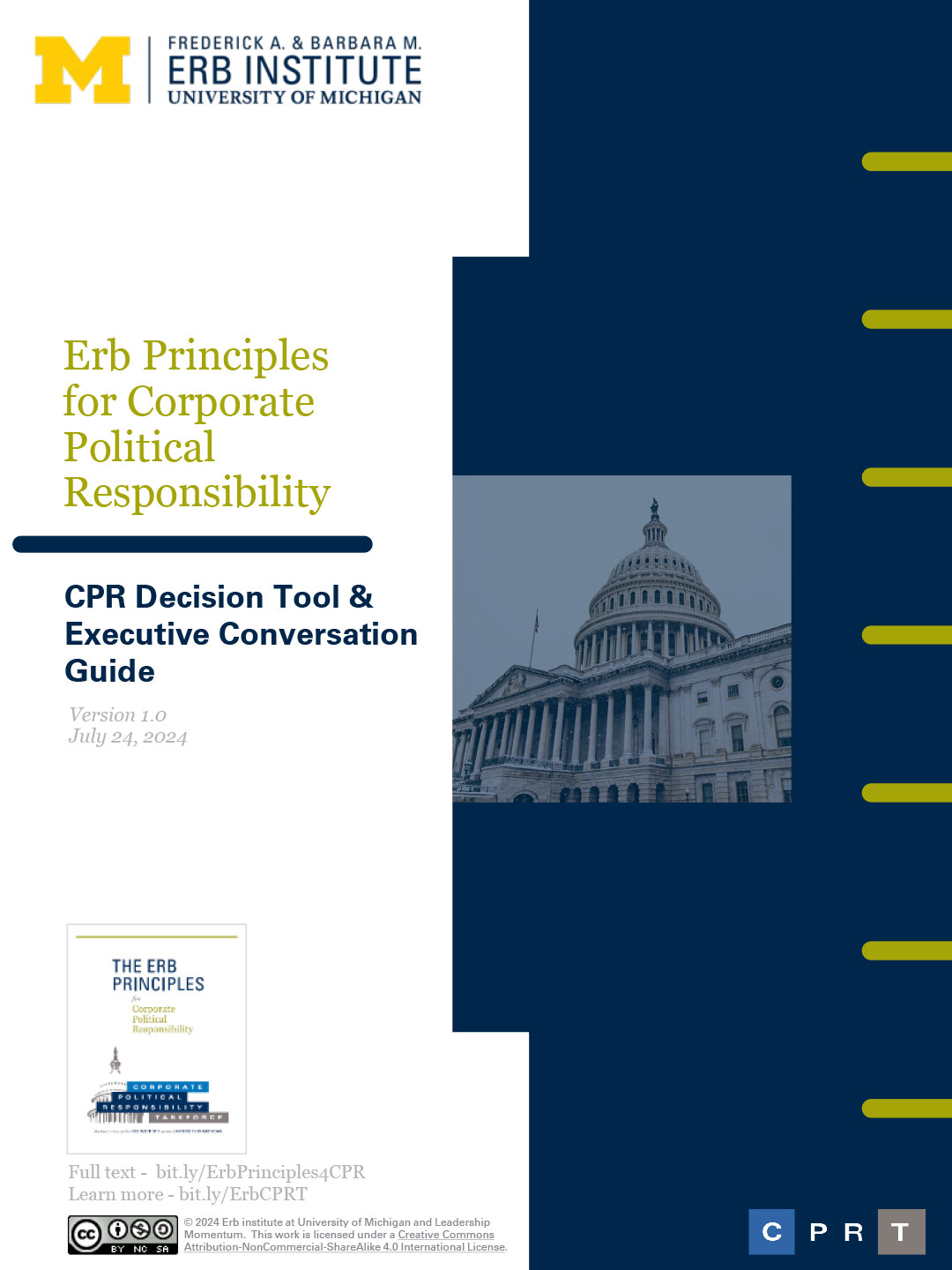Do you have a resource to recommend for The CPR Hub? Please reach out and we will review it for future updates!
The Future of Trade Associations & Sustainability Policy
Video 3 of 3
On March 27, 2024, we spoke with Renee Henze, Chief Sustainability Officer, International Flavors and Fragrances, and Nathan Sell, Senior Director, Sustainability, American Cleaning Institute to explore “Trade Association-Member Collaboration for Sustainability Policy: A New Model?.”
Trade associations are key players in helping businesses and industry sectors deliver on ambitious sustainability goals, stakeholder priorities, and an ultimate interest in a healthy environment. In these efforts, public policy is a critical lever. As a natural vehicle for industry advocacy on sustainability policy, trade associations lobby and sometimes make political contributions. Yet, specific views on sustainability issues are diverse, and some players will bear more of the cost of regulatory changes. How can trade associations navigate these diverse views without diluting ambition? How could a principled structure for political activities guide sustainability efforts and facilitate collaboration? Our guest speakers shared a case study of trade association-member collaboration to align on clear, proactive sustainability initiatives and policy, which could be a new model for associations more broadly.
In this module, we explore:
- Could this effort become a new model for trade associations and sustainability policy?
- What sort of policy questions do you foresee bringing this approach to in the future?
- How important is public policy in achieving sustainability goals?
The Corporate Political Responsibility Taskforce (CPRT)’s Expert Dialogues are in-depth, recorded conversations with academic experts, stakeholder advocates and business practitioners to provide our members and other CPR champions with the expertise and context they need to develop principled, proactive CPR strategies. We invite those interested in a constructive, non-partisan, principles-based discussion.
As Chief Sustainability Officer at IFF (International Flavors & Fragrances), Renee Henze leads IFF’s Environmental, Social and Governance strategy, execution, and reporting functions, as well as the teams that drive sustainable innovation as it relates to customer engagement, sustainability communication and marketing, responsible sourcing, human rights due diligence and community impact.
Senior Director of Sustainability at the American Cleaning Institute Nathan Sell is responsible for leading, developing and executing all facets of ACI’s sustainability program, managing and directing internal, member focused and public initiatives for sustainability regarding cleaning products.
Keywords: #CorporatePoliticalResponsibility, #CPR_Environment, #CPR_Long-term Value, #CPR_BizStrategy, #CPR_Trends, #CPR_TradeAssociations


